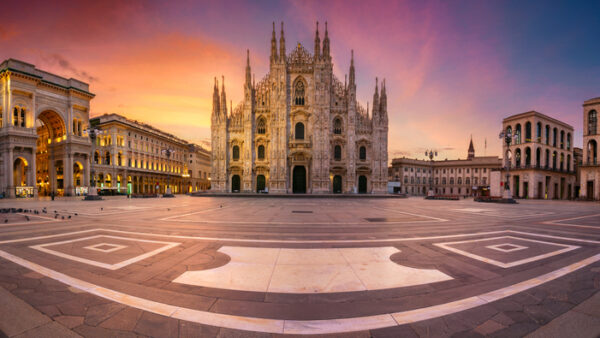Delicious curries and clean, spacious accommodation were on display this week at a large workers’ camp in Qatar as one of the country’s biggest construction clients sought to show an international delegation that not all migrant labourers live in squalid conditions.
We were driven by bus to the camp, located in the city of Al Khor, 50km from our hotel in Doha, and led through selected rooms. The tour began at around 2.30pm on Sunday, with no construction workers present at the time.
The camp is operated by QDVC, a joint venture between state-owned developer Qatari Diar and French contractor Vinci Construction Grands Projets. In June 2013, QDVC won a $2bn contract to complete civil works for the southern part of Doha Metro’s Red Line.
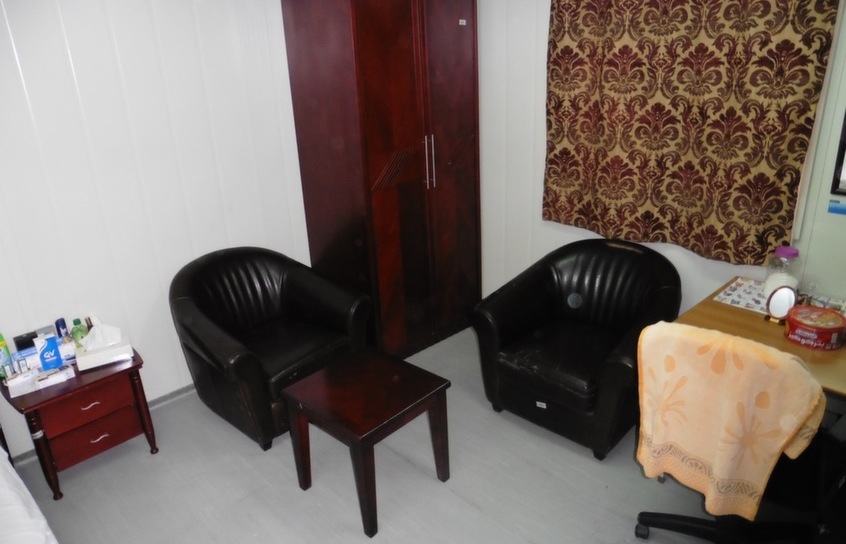
Furniture in the foremen’s rooms (Rod Sweet)
Some of the workers at the camp, who come from India, Sri Lanka, and the Philippines, as well as other Arab states, are working on the Red Line, and some work on other QDVC projects.
Our tour was organised by Stephen Lines, senior commercial manager for Qatar Rail, which is QDVC’s client on the Doha Metro project, and one of the largest construction clients in Qatar. Lines was keen to make the point that not all employers in Qatar can be “tarred with the same brush”. He was referring to articles published in the UK’s Guardian newspaper last year, and a report by Amnesty International released in November, that highlighted instances of harsh conditions and mistreatment of Qatar’s migrant workforce.
The prefabricated accommodation we saw was ageing but in sound condition. The rooms were tidy, clean – the smell of cleaning agents was strong – and spacious. The quarters for site foremen had one or two beds per room, with other basic furniture, and more junior workers had three beds per room.
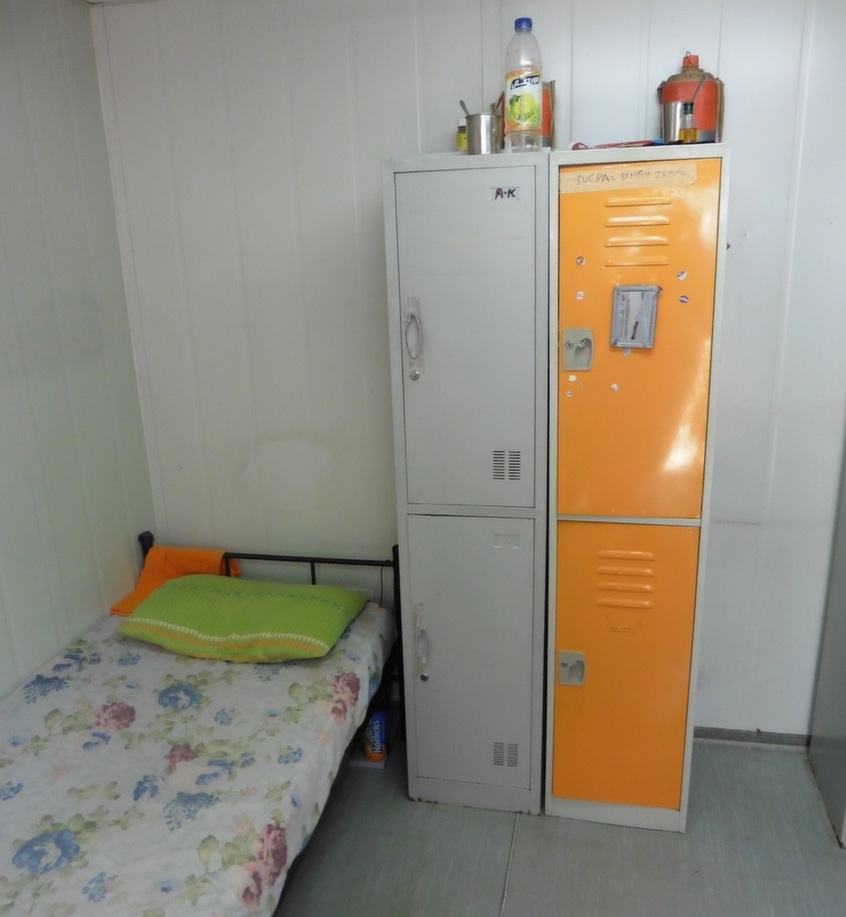
Bed and locker in a three-bed room (Rod Sweet)
After seeing eight or so such rooms, we were taken to the dining hall and served what was billed as a “typical” workers’ lunch, with Filipino, Sri Lankan and Indian dishes on offer. Tipped that it was the spiciest, I chose the Sri Lankan curries, and they were as good as any I’ve had in restaurants, with generous amounts of fresh vegetables, pulses and meat. Our party was the dining hall’s only customers at the time.
After lunch we were given a presentation by QDVC’s commercial manager and head of department, Karim Chettouh, about a workers’ village under construction on another site. It will house 2,300 men working on the Red Line project, where tunnel boring is to begin soon.Â
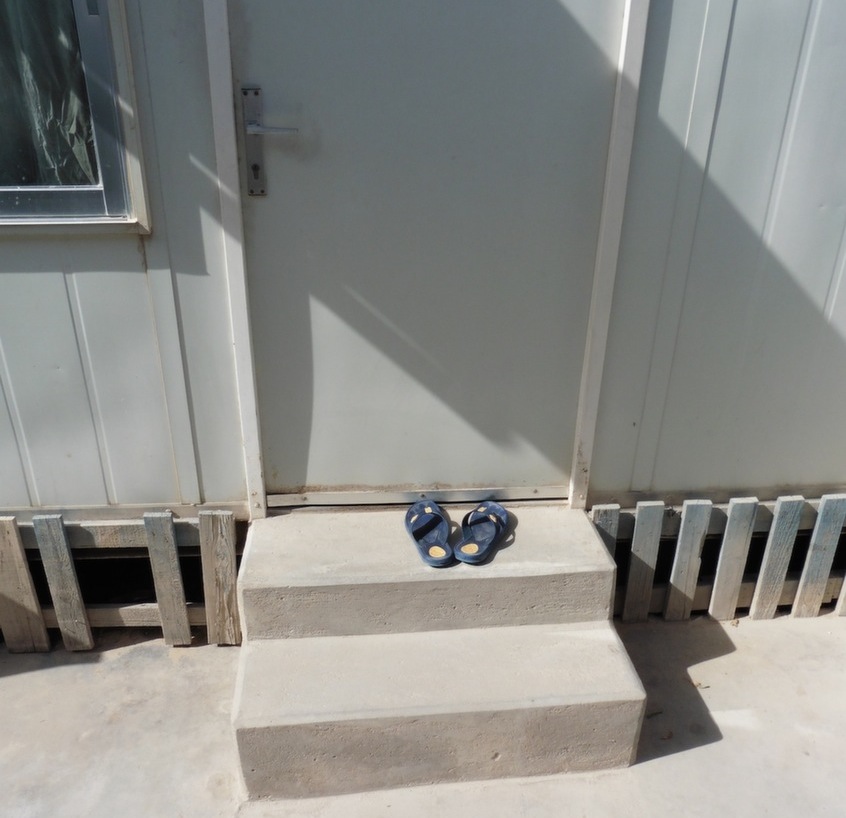
The prefabricated structures were ageing but sound (Rod Sweet)
That village has been designed in compliance with rigorous worker welfare standards set out in a charter by the Qatar Foundation, a semi-public charitable body that promotes education, research and human development. Contractors working on any Qatar Foundation schemes must abide by these standards. Qatar Rail voluntarily adopted them in February 2013.Â
The building block of the new QDVC workers’ village will be a three-bedroom unit, each sleeping 12 men, and each with a living room and bathroom. Karim Chettouh said QDVC will bear the cost of building the village.
Background
The visiting delegation was made up of construction professionals from various countries, who were in Doha to attend the annual conference of the Chartered Institute of Building (CIOB), which publishes GCR.Â
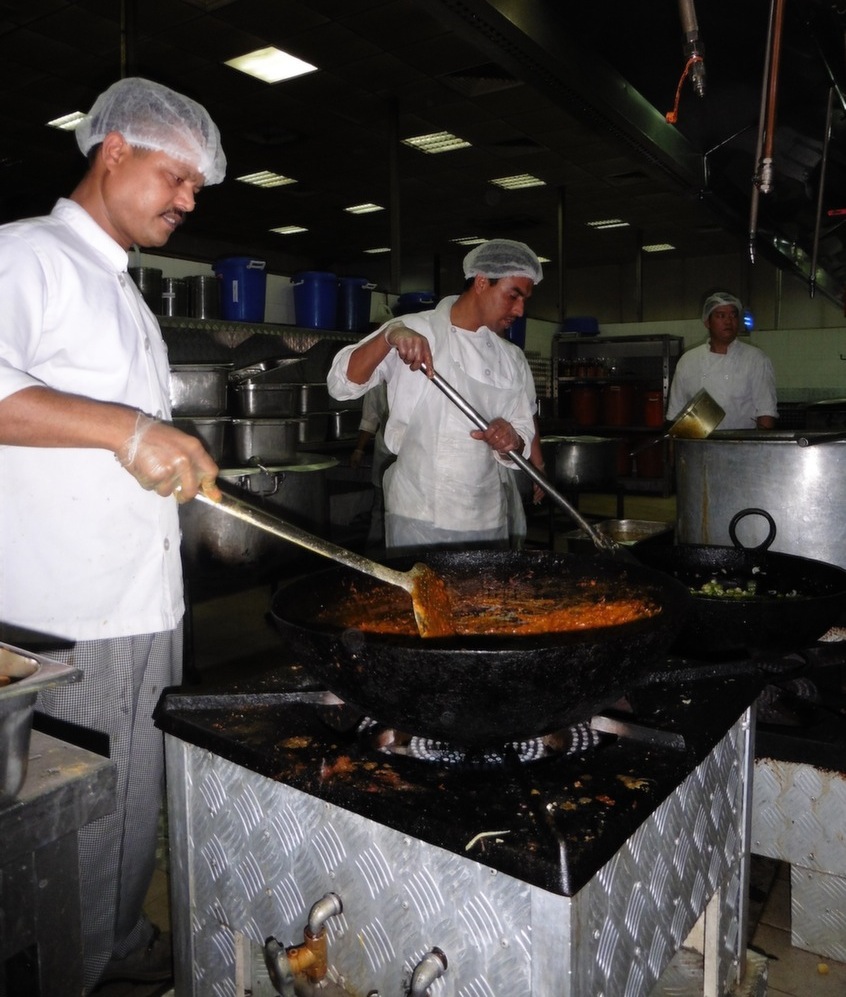
Chefs prepare lunch (Rod Sweet)
Earlier that day, the outgoing president of the CIOB, Peter Jacobs, signed a memorandum of understanding with the Qatar Foundation pledging to endorse the foundation’s Mandatory Standards of Migrant Workers’ Welfare.
Qatar Rail’s Stephen Lines, who is also the CIOB’s Middle East region president, organised the visit to the QDVC workers’ camp. He told delegates the Qatar Foundation’s standards would help “drive improvement” to the level of the contractors and subcontractors.
“We’ve got 10 years of work, minimum,” he said. “They cannot afford to miss out on that.”Â
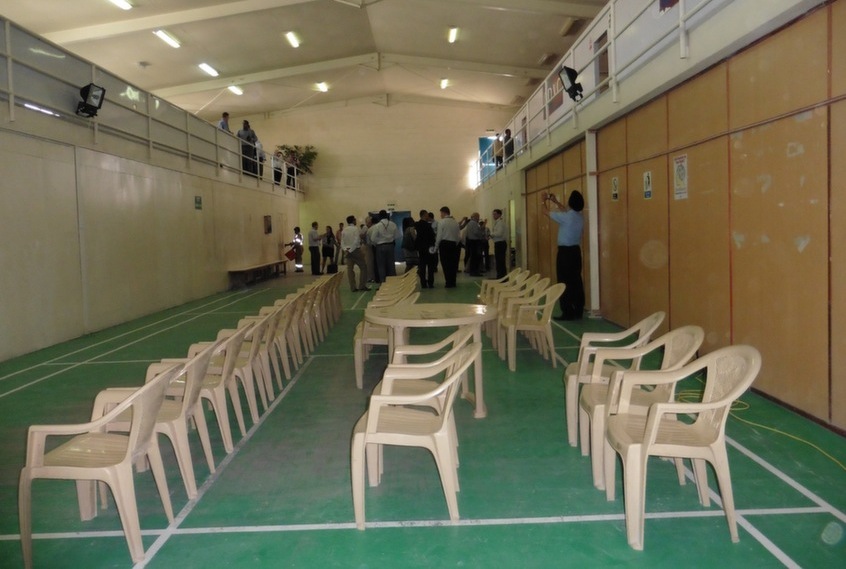
The delegation tours the camp leisure hall (Rod Sweet)
See also this week:
Human misery to increase in Qatar without urgent change: Amnesty International
Portrayal of Qatar workers’ plight “much blacker” than reality, say contractors


